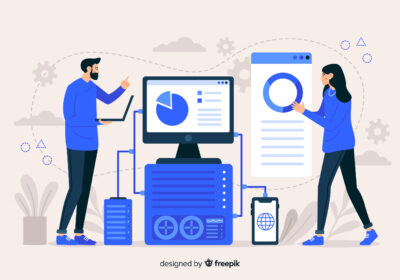The coffee industry, from bean to cup, is a complex ecosystem characterized by unique challenges. Sourcing high-quality beans from diverse regions, ensuring consistent production, managing intricate distribution channels, and catering to evolving consumer preferences demand efficient operations. This is where Enterprise Resource Planning (ERP) systems emerge as a powerful tool.
The Coffee Industry: Unique Challenges and ERP Solutions
The coffee industry faces a myriad of challenges, including:
- Supply Chain Complexity: Managing global supply chains, ensuring traceability, and mitigating risks associated with weather, political instability, and price fluctuations.
- Quality Control: Maintaining consistent quality standards from bean to cup, complying with food safety regulations, and managing traceability.
- Inventory Management: Balancing inventory levels to avoid stockouts or overstocking, especially for perishable products like coffee beans and ground coffee.
- Production Planning: Optimizing production schedules, managing labor resources, and minimizing waste.
- Distribution Logistics: Efficiently managing transportation, warehousing, and order fulfillment.
- Financial Management: Tracking costs, managing finances, and generating accurate reports for decision-making.
- Customer Relationship Management: Understanding customer preferences, building loyalty, and providing excellent customer service.
ERP systems can address these challenges by integrating various business functions into a single platform, providing real-time visibility, and enabling data-driven decision-making.
Key ERP Modules for the Coffee Industry
An ERP system tailored for the coffee industry should include the following core modules:
- Supply Chain Management (SCM): Track the entire supply chain, from sourcing to delivery, ensuring traceability and optimizing procurement processes.
- Inventory Management: Monitor stock levels, manage expiration dates, and optimize inventory turnover.
- Quality Management: Implement quality control measures, track product information, and ensure compliance with food safety regulations.
- Production Planning: Schedule production, allocate resources, and optimize production processes for maximum efficiency.
- Distribution Management: Manage transportation, warehousing, and order fulfillment to ensure timely delivery.
- Financial Management: Handle accounting, financial reporting, budgeting, and forecasting.
- Customer Relationship Management (CRM): Manage customer interactions, track sales, and analyze customer data for targeted marketing.
ERP Success Stories in the Coffee Industry
Several coffee companies have successfully implemented ERP systems to drive growth and efficiency. For example, [Coffee Company A], a global coffee roaster, adopted an ERP solution to streamline its supply chain, improve inventory management, and enhance financial visibility. As a result, the company reduced costs, improved on-time delivery, and gained valuable insights into customer preferences.
Selecting the Right ERP System
When choosing an ERP system, coffee businesses should consider the following factors:
- Scalability: The system should be able to accommodate business growth and expansion.
- Integration Capabilities: It should seamlessly integrate with existing systems, such as point-of-sale (POS) and e-commerce platforms.
- Cost: Evaluate the total cost of ownership, including software licenses, implementation, customization, and ongoing maintenance.
- User-Friendliness: The system should have a user-friendly interface to facilitate adoption and training.
- Industry-Specific Functionality: Look for ERP solutions designed specifically for the coffee industry or those that can be easily customized to meet industry requirements.
Implementing ERP: Tips for Success
Successful ERP implementation involves careful planning and execution. Key steps include:
- Define Business Requirements: Clearly outline the goals and objectives of the ERP implementation.
- Select the Right Vendor: Choose an ERP vendor with a proven track record in the coffee industry.
- Involve Key Stakeholders: Ensure buy-in from all departments involved in the implementation process.
- Data Migration: Accurately transfer data from existing systems to the ERP system.
- User Training: Provide comprehensive training to employees to maximize system utilization.
- Change Management: Effectively manage the change process to minimize disruptions.
The Future of ERP in the Coffee Industry
Advancements in technology, such as artificial intelligence, automation, and data analytics, will continue to shape the future of ERP in the coffee industry. These technologies can optimize supply chain operations, enhance quality control, and improve customer experiences. By embracing these trends, coffee businesses can stay ahead of the competition and drive sustainable growth.
In conclusion, ERP systems offer significant benefits for coffee businesses by streamlining operations, improving efficiency, and providing valuable insights. By carefully selecting and implementing the right ERP solution, coffee companies can achieve greater profitability and competitiveness in the dynamic coffee market.





